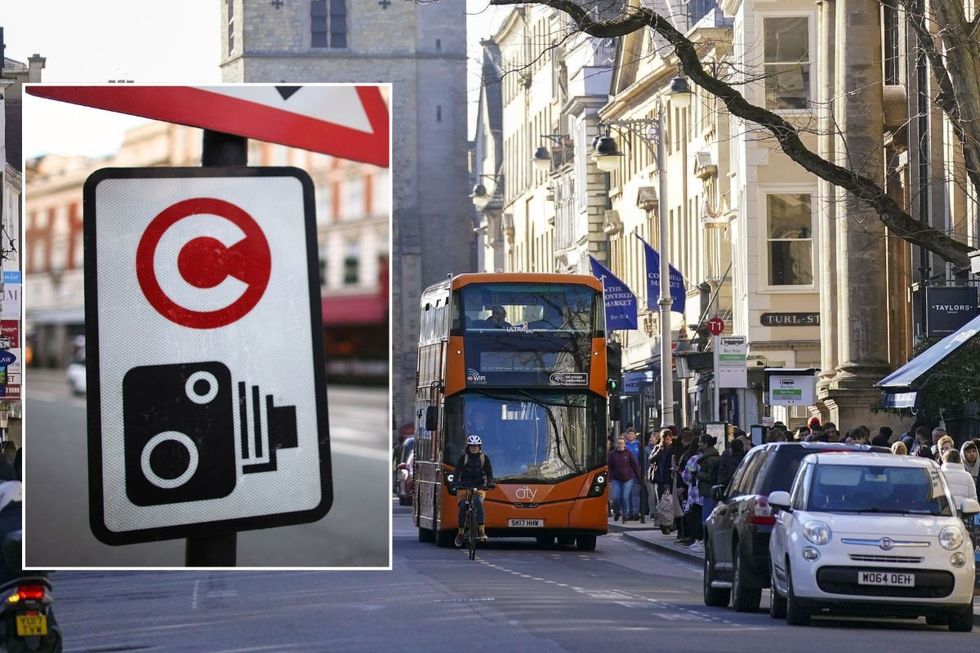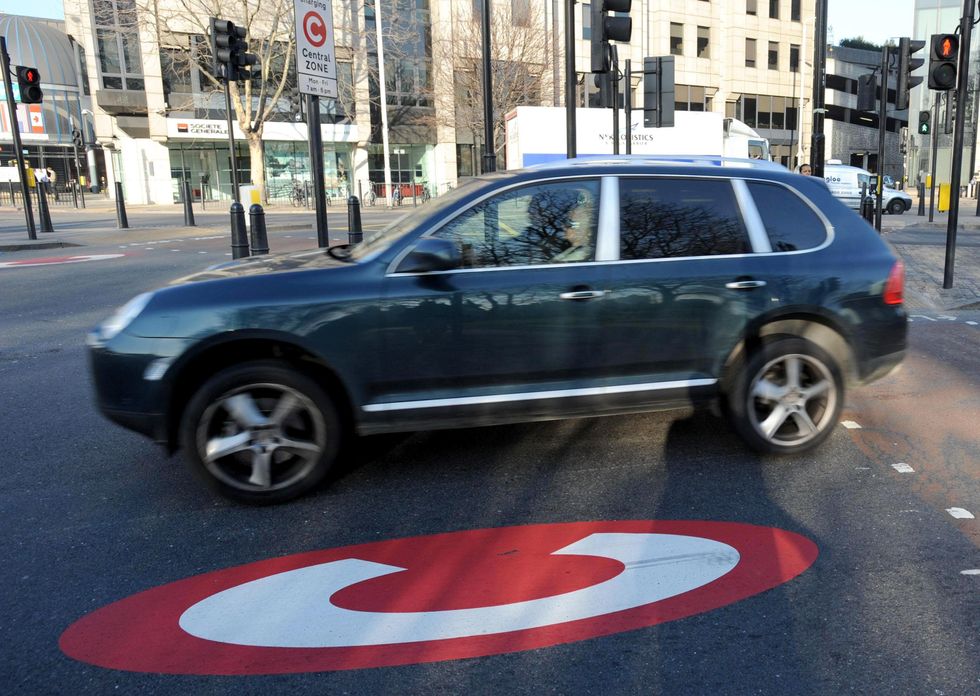Major city gets ready to introduce 'essential' road charging as thousands face £5 daily fee to travel

Oxford County Council will announce plans for the proposed Congestion Charge in September
Don't Miss
Most Read
Drivers have been warned they could face new road charges across a major region as plans move one step closer to coming into effect.
Oxford's proposed temporary Congestion Charge scheme has taken the next step forward to implementation as councillors prepare for a crucial cabinet decision on September 10.
The scheme would introduce a £5 daily fee for cars passing through six designated charging points from autumn 2025.
The charges would operate year-round, including bank holidays, using Automatic Number Plate Recognition cameras at locations to ensure drivers pay the daily driving toll.
Do you have a story you'd like to share? Get in touch by emailing motoring@gbnews.uk

Oxfordshire County Council said the proposed road charges would encourage people to use public transport
| GETTY/PAUnder the scheme, motorists without permits would pay once daily for unlimited passages through any charging point until the day's end.
Following the June and July public consultation, revised proposals now incorporate complementary park and ride travel and additional permit categories, the council explained.
The six charging locations would operate at Hythe Bridge Street, St Cross Road, St Clements Street, Thames Street, Marston Ferry Road and Hollow Way.
Four sites would enforce charges daily between 7am and 7pm, while Marston Ferry Road and Hollow Way would operate Monday to Saturday during morning rush hours from 7am to 9am and afternoon periods from 3pm to 6pm.

Councillors will vote on introducing road charging in September
| PAAll vehicles except cars would travel freely without charges or permits, with the scheme also offering extensive exemptions, including Blue Badge holders, disability benefit recipients, community health workers, carers, emergency services, taxis, driving instructors and funeral vehicles.
A new central permit zone would also look to grant unlimited access to residents and commuters whose workplace parking falls within this area. Oxford residents outside the central zone would receive 100-day passes annually, while Oxfordshire residents would obtain 25-day passes.
Today, the Place Overview & Scrutiny Committee examined the Congestion Charge proposals during a meeting at County Hall.
Councillor Andrew Gant said: "We urgently need to see improvements to travel around the city; better bus services and less traffic overall, to help people get around. We must take action for our residents, businesses and visitors while Botley Road remains closed, and I look forward to discussing the options with cabinet colleagues."
Council Leader Liz Leffman presented the report alongside senior officers, including Executive Director Lorna Baxter, Head of Place Shaping Hannah Battye and Programme Lead Aron Wisdom. The committee scrutinised various aspects of the scheme and formulated recommendations for cabinet consideration.
Meeting documents revealed detailed officer responses addressing stakeholder concerns with officers defending the proposals against criticism regarding traffic displacement, air quality impacts and scheme effectiveness, providing comprehensive rebuttals to opposition arguments about bus service improvements and accessibility issues.
Council officers justified the temporary scheme as "essential" following bus journey time increases of up to 17 per cent on Abingdon Road after Botley Road's closure.
The proposals also aim to achieve a 10 per cent improvement in bus productivity by the end of 2025 as more people look to stop driving in the city centre.

The introduction of the Congestion Charge will see drivers slapped with £5 daily fees
| PAMeanwhile, traffic modelling has forecasted that the Congestion Charge will lead to a 20 per cent reduction in city centre traffic and approximately 50 per cent decrease on Hollow Way and Marston Ferry Road.
Officers emphasised that charging points function as a coordinated network to reduce congestion across Oxford, not merely at individual locations.
But opposition groups challenged the scheme's effectiveness, with Open Roads for Oxford and Reconnecting Oxford submitting detailed objections during consultation.
Critics questioned whether traffic would simply displace to other routes, potentially worsening air quality in residential areas like Woodstock Road. Council officers responded that while some locations might experience increased traffic, overall benefits would outweigh localised impacts.











